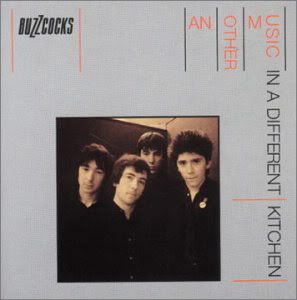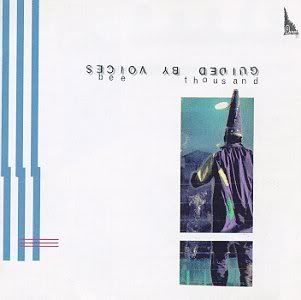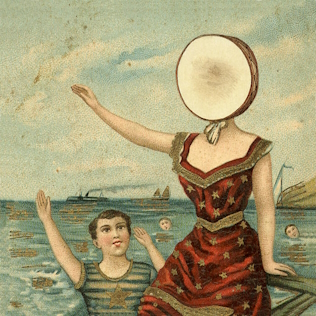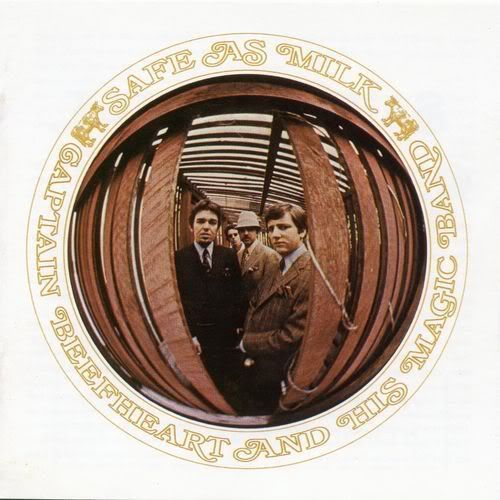Fuckin' A's every ESSENTIAL album you should own thread
Moderator: Philaflava
-
BlingRhames
- Posts: 5212
- Joined: Mon Feb 16, 2004 10:29 pm
- Location: new yitty
-
BlingRhames
- Posts: 5212
- Joined: Mon Feb 16, 2004 10:29 pm
- Location: new yitty
-
Money Gripp
- Posts: 15623
- Joined: Tue Feb 03, 2004 5:11 pm
- Location: Undetermined
- Contact:
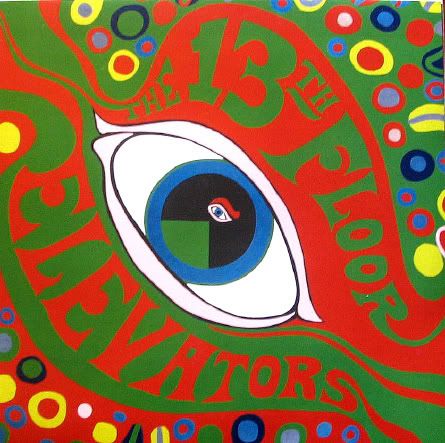
13th Floor Elevators The Psychedelic Sounds of the 13th Floor Elevators (1966)
VBR
1 You're Gonna Miss Me 2:30
2 Roller Coaster 5:06
3 Splash 1 3:54
4 Reverberation 2:48
5 Don't Fall Down 3:00
6 Fire Engine 3:19
7 Thru the Rhythm 3:07
8 You Don't Know (How Young You Are) 2:56
9 Kingdom of Heaven 3:08
10 Monkey Island 2:37
11 Tried to Hide 2:47
Bonus tracks
12 Everybody Needs Somebody to Love [live] 5:14
13 You Really Got Me [live] 6:16
14 Gloria [live] 3:55
15 You're Gonna Miss Me [live] 3:26
Reviews and ratings:
Included in 1001 Albums You Must Hear Before You Die
The 13th Floor Elevators might have been remembered simply as one-hit wonder of the '60s--the Texas equivalent of the Count 5, for example--had it not been for two things. First, they were the only rock band in history to feature a guy playing a continuous obligato on electric jug, which added a deeply weird element to even their most straightforward three-chord rockers. Second, and perhaps more importantly, they were fronted by a genuine howling weirdo and cult figure-to-be, the incomparable Roky Erickson.
Roky, who took more acid trips than Jerry Garcia had hot meals, was nonetheless a gifted songwriter who sang every word (however bizarre) as if his life depended on it. This debut album--reputedly the first rock album on which the word 'psychedelic' appears-- features the band's sole national hit, the garage punk classic "You're Gonna Miss Me." The other material here is nearly as good, however, including the Stones-y "Reverberation" and the oft-covered "Fire Engine."
-
GM Dizzy Skillespie
- Ghetto Revivalist
- Posts: 10965
- Joined: Thu Jan 29, 2004 1:50 am
-
Money Gripp
- Posts: 15623
- Joined: Tue Feb 03, 2004 5:11 pm
- Location: Undetermined
- Contact:

Misfits Walk Among Us (1982)
VBR
1 20 Eyes 1:46
2 I Turned Into a Martian 1:43
3 All Hell Breaks Loose 1:47
4 Vampira 1:20
5 Nike-A-Go-Go 2:10
6 Hatebreeders 3:00
7 Mommy, Can I Go Out and Kill Tonight? (live) 1:59
8 Night of the Living Dead 1:58
9 Skulls 2:00
10 Violent World 1:40
11 Devils Whorehouse 1:45
12 Astro Zombies 2:15
13 Braineaters 0:56
Reviews and ratings:
Ranked #52 on Pushead's Top 100 Hardcore Records of the 80's
AMG wrote:The Misfits' 1982 debut full-length, Walk Among Us, rapidly became a legendary effort of U.S. punk, the more so because it so willfully violated many rules which were already ironically straitjacketing the scene. Utterly devoid of political confrontation or social uplift, embracing a costume sense that might have given Kiss pause and generally coming across like the horror-movie nightmares they looked like on the cover, the Misfits just wanted to entertain and do their own thing -- and that they did, brilliantly. Nearly every song on the album -- 13 total, delivered in a light-speed 25 minutes -- is a twisted classic, with the band's trademark '50s/'60s melodies run through a punk/metal meatgrinder on full display. The higher-budget (in very relative terms) recording meant a slightly cleaner and brighter sound all around, but nothing about Walk Among Us is slick, especially in commercial 1982 terms. One song title says it all: "All Hell Breaks Loose." Danzig's gift for creepy, strong, and attractively dark singing was long since established and he uses it brilliantly, making the over-the-top lyrics all the more enjoyable, while Doyle, Jerry Only, and Arthur Googy kick out the jams on Danzig's songs big time -- check out "Hatebreeders," "Violent World," and the crazed "Skulls." Everything ends with the giddily ridiculous "Braineaters," in which the chanting voices of the band bemoan their constant diet of cerebella and ask for intestines instead, but the real freaked-out highlight comes smack dab in the middle with "Mommy Can I Go Out and Kill Tonight." Taken from the show that made up the Evilive release, it starts out on the edge and, after Danzig delivers the title sans instruments, turns into an explosion of rhythm and feedback that should have killed everything within 50 feet of the amps.
-
Seiko Flossberg
- Posts: 9486
- Joined: Thu Dec 07, 2006 7:03 pm
- Location: Where one of the greatest MC's was a local cat
-
bradlizuck
- Posts: 247
- Joined: Wed Feb 11, 2004 3:38 am
- Contact:
ive been bumping the shit outta this for the last few weeks. i love this album. reminds me of being 11 again.Money Gripp wrote:
Misfits Walk Among Us (1982)
VBR
1 20 Eyes 1:46
2 I Turned Into a Martian 1:43
3 All Hell Breaks Loose 1:47
4 Vampira 1:20
5 Nike-A-Go-Go 2:10
6 Hatebreeders 3:00
7 Mommy, Can I Go Out and Kill Tonight? (live) 1:59
8 Night of the Living Dead 1:58
9 Skulls 2:00
10 Violent World 1:40
11 Devils Whorehouse 1:45
12 Astro Zombies 2:15
13 Braineaters 0:56
Reviews and ratings:
Ranked #52 on Pushead's Top 100 Hardcore Records of the 80's
AMG wrote:The Misfits' 1982 debut full-length, Walk Among Us, rapidly became a legendary effort of U.S. punk, the more so because it so willfully violated many rules which were already ironically straitjacketing the scene. Utterly devoid of political confrontation or social uplift, embracing a costume sense that might have given Kiss pause and generally coming across like the horror-movie nightmares they looked like on the cover, the Misfits just wanted to entertain and do their own thing -- and that they did, brilliantly. Nearly every song on the album -- 13 total, delivered in a light-speed 25 minutes -- is a twisted classic, with the band's trademark '50s/'60s melodies run through a punk/metal meatgrinder on full display. The higher-budget (in very relative terms) recording meant a slightly cleaner and brighter sound all around, but nothing about Walk Among Us is slick, especially in commercial 1982 terms. One song title says it all: "All Hell Breaks Loose." Danzig's gift for creepy, strong, and attractively dark singing was long since established and he uses it brilliantly, making the over-the-top lyrics all the more enjoyable, while Doyle, Jerry Only, and Arthur Googy kick out the jams on Danzig's songs big time -- check out "Hatebreeders," "Violent World," and the crazed "Skulls." Everything ends with the giddily ridiculous "Braineaters," in which the chanting voices of the band bemoan their constant diet of cerebella and ask for intestines instead, but the real freaked-out highlight comes smack dab in the middle with "Mommy Can I Go Out and Kill Tonight." Taken from the show that made up the Evilive release, it starts out on the edge and, after Danzig delivers the title sans instruments, turns into an explosion of rhythm and feedback that should have killed everything within 50 feet of the amps.
-
Y@k Bollocks
- Posts: 9789
- Joined: Thu Jan 29, 2004 7:18 am
- Location: I was wearing Sergio Tacchini before the internet existed
-
b0mbs_of_death
- Posts: 4462
- Joined: Tue Apr 19, 2005 10:03 am
- Location: Dirty JC heights
My favorite Misfits - 12 Hits from Hell
Only recording with two guitars, Cripple Steele and Doyle von Fafegnugen

Only recording with two guitars, Cripple Steele and Doyle von Fafegnugen

Code: Select all
http://www.megaupload.com/?d=QGEMV6GN-
bradlizuck
- Posts: 247
- Joined: Wed Feb 11, 2004 3:38 am
- Contact:
-
Money Gripp
- Posts: 15623
- Joined: Tue Feb 03, 2004 5:11 pm
- Location: Undetermined
- Contact:
-
Money Gripp
- Posts: 15623
- Joined: Tue Feb 03, 2004 5:11 pm
- Location: Undetermined
- Contact:
Money Gripp wrote:Guided By Voices - Bee Thousand (1994)
Bitrate: VBR
Money Gripp sez: Strange off-the-wall lyrics and sparse muscisianship are captured with dirt cheap recording equipment, but in the capable song-writing hands of Robert Pollard this unassuming approach produces staggering brilliance. "I Am The Scientist" deserves mention as one of the handful of songs whose lyrics struck such a chord with me that they became a sort of personal manifesto. Thank you, Mr. Pollard.
1 Hardcore UFO's 1:54
2 Buzzards and Dreadful Crows 1:43
3 Tractor Rape Chain 3:04
4 The Goldheart Mountaintop Queen Directory 1:45
5 Hot Freaks 1:42
6 Smothered in Hugs 3:00
7 Yours to Keep 1:15
8 Echos Myron 2:42
9 Gold Star for Robot Boy 1:39
10 Awful Bliss 1:12
11 Mincer Ray 2:21
12 A Big Fan of the Pigpen 2:09
13 Queen of Cans and Jars 1:55
14 Her Psychology Today 2:04
15 Kicker of Elves 1:04
16 Ester's Day 1:51
17 Demons Are Real 0:48
18 I Am a Scientist 2:24
19 Peep-Hole 1:25
20 You're Not an Airplane 0:33
Code: Select all
http://www.sendspace.com/file/n51a7j
One more time
Code: Select all
hccp://www.mediafire.com/?6uzuz0z1yz3
-
Money Gripp
- Posts: 15623
- Joined: Tue Feb 03, 2004 5:11 pm
- Location: Undetermined
- Contact:
RE-UPFuckin' A wrote:Neutral Milk Hotel - In the Aeroplane Over the Sea (1998)
Genre: Indie Rock
Bitrate: VBR
1 The King of Carrot Flowers Pt. One 2:00
2 The King of Carrot Flowers Pts. Two & Three 3:06
3 In the Aeroplane Over the Sea 3:22
4 Two-Headed Boy 4:26
5 The Fool 1:53
6 Holland, 1945 3:12
7 Communist Daughter 1:57
8 Oh Comely 8:18
9 Ghost 4:08
10 [untitled] 2:16
11 Two-Headed Boy Pt. Two 5:13
Shortly after the release of In the Aeroplane Over the Sea, Puncture magazine had a cover story on Neutral Milk Hotel. In it Mangum told of the influence on the record of Anne Frank's The Diary of a Young Girl. He explained that shortly after releasing On Avery Island he read the book for the first time, and found himself completely overwhelmed with sadness and grief. Back in 1998 this admission made my jaw drop. What the hell? A guy in a rock band saying he was emotionally devastated by a book everyone else in America read for a middle-school assignment? I felt embarrassed for him at first, but then, the more I thought about it and the more I heard the record, I was awed. Mangum's honesty on this point, translated directly to his music, turned out to be a source of great power.
In the Aeroplane Over the Sea is a personal album but not in the way you expect. It's not biography. It's a record of images, associations, and threads; no single word describes it so well as the beautiful and overused "kaleidoscope." It has the cracked logic of a dream, beginning with "King of Carrot Flowers Part 1". The easiest song on the record to like on first listen, it quietly introduces the listener to the to the album's world, Mangum singing in a muted voice closer to where he left off with the more restrained On Avery Island (through most of Aeroplane he sounds like he's running out of time and struggling to get everything said). The first four words are so important: "When you were young..." Like every perceptive artist trafficking in memory, Mangum knows dark surrealism to be the language of childhood. At a certain age the leap from kitchen utensils jammed into dad's shoulder to feet encircled by holy rattlesnakes is nothing. A cock of the head; a squint, maybe.
Inside this dream it all begins in the body. Moments of trauma, joy, shame-- here they're all experienced first as physical sensation. A flash of awkward intimacy is recalled as "now how I remember you/ how I would push my fingers through your mouth/ to make those muscles move." Sometimes I hear this line and chuckle. I think of Steve Martin in The Jerk, licking Bernadette Peters' entire face as a sign of affection. Mangum here reflects the age when biological drives outpace the knowledge of what to do with them, a time you're seeing sex in everything ("semen stains the mountaintops") or that sex can be awkward and unintentionally painful ("fingers in the notches of your spine" is not what one usually hopes for in the dark). Obsessed as it is with the textures of the flesh and the physical self as an emotional antenna, listening to Aeroplane sometimes seems to involve more than just your ears.
Then there's the record's disorienting relationship to time. The instrumentation seems plucked randomly from different years in the 20th century: singing saws, Salvation Army horn arrangements, banjo, accordion, pipes. Lyrical references to technology are hard to fix. Anne Frank's lifespan from 1929 to 1945 is perhaps the record's historical center, but the perspective jumps back and forth over centuries, with images and figures sucked from their own age and squirted out somewhere else. When "The King of Carrot Flowers Part 3" mentions "a synthetic flying machine" our minds leap to something like Leonardo da Vinci's 15th Century drawings of his helicopter prototype. The image in "Two-Headed Boy" of a mutant child trapped in a jar of formaldehyde is pulled from Dr. Moreau's industrial age island. The radio play powered by pre-electric pulleys and weights, the nuclear holocaust in the title track. What's it all about? Mangum offers an explanation for these jarring leaps in a line about Anne Frank in "Oh Comely," where he sings, "I know they buried her body with others/ her sister and mother and 500 families/ and will she remember me 50 years later/ I wished I could save her in some sort of time machine." If you can move through time, see, nothing ever really dies.
Seven years it's been, and whether Mangum has had personal trouble or somehow lost his way with music, it's not unreasonable to think that we've heard the last from Neutral Milk Hotel. I hope he does, but he may never pick up the guitar he set down after "Two-Headed Boy Part Two." Even so, we have this album and another very good one, and that to me is serious riches. Amazing to think how it started, how at the core of it all was guts. I keep thinking of "It's Alright Ma, I'm Only Bleeding," and one of Dylan's truest lines: "If my thought-dreams could be seen/ They'd probably put my head in a guillotine." Aeroplane is what happens when you have that knowledge and still take the risk.Code: Select all
http://www.sendspace.com/file/5r1afx
-
Funky Butler
- Posts: 1003
- Joined: Mon Mar 08, 2004 10:21 pm
- Contact:

Sweat Band- Sweat Band (1980)
Code: Select all
http://www.sendspace.com/file/neyseyHemingway Novel Model
-
Seiko Flossberg
- Posts: 9486
- Joined: Thu Dec 07, 2006 7:03 pm
- Location: Where one of the greatest MC's was a local cat
Danke schMoney Gripp wrote:
Buzzcocks Another Music in a Different Kitchen (1978)
VBR
1 Fast Cars 2:26
2 No Reply 2:16
3 You Tear Me Up 2:27
4 Get on Our Own 2:26
5 Love Battery 2:09
6 Sixteen 3:38
7 I Don't Mind 2:18
8 Fiction Romance 4:27
9 Autonomy 3:43
10 I Need 2:43
11 Moving Away from the Pulse Beat 7:02
this review is awful, but the album is top notch.Money Gripp wrote:RE-UPFuckin' A wrote:Neutral Milk Hotel - In the Aeroplane Over the Sea (1998)
Genre: Indie Rock
Bitrate: VBR
1 The King of Carrot Flowers Pt. One 2:00
2 The King of Carrot Flowers Pts. Two & Three 3:06
3 In the Aeroplane Over the Sea 3:22
4 Two-Headed Boy 4:26
5 The Fool 1:53
6 Holland, 1945 3:12
7 Communist Daughter 1:57
8 Oh Comely 8:18
9 Ghost 4:08
10 [untitled] 2:16
11 Two-Headed Boy Pt. Two 5:13
Shortly after the release of In the Aeroplane Over the Sea, Puncture magazine had a cover story on Neutral Milk Hotel. In it Mangum told of the influence on the record of Anne Frank's The Diary of a Young Girl. He explained that shortly after releasing On Avery Island he read the book for the first time, and found himself completely overwhelmed with sadness and grief. Back in 1998 this admission made my jaw drop. What the hell? A guy in a rock band saying he was emotionally devastated by a book everyone else in America read for a middle-school assignment? I felt embarrassed for him at first, but then, the more I thought about it and the more I heard the record, I was awed. Mangum's honesty on this point, translated directly to his music, turned out to be a source of great power.
In the Aeroplane Over the Sea is a personal album but not in the way you expect. It's not biography. It's a record of images, associations, and threads; no single word describes it so well as the beautiful and overused "kaleidoscope." It has the cracked logic of a dream, beginning with "King of Carrot Flowers Part 1". The easiest song on the record to like on first listen, it quietly introduces the listener to the to the album's world, Mangum singing in a muted voice closer to where he left off with the more restrained On Avery Island (through most of Aeroplane he sounds like he's running out of time and struggling to get everything said). The first four words are so important: "When you were young..." Like every perceptive artist trafficking in memory, Mangum knows dark surrealism to be the language of childhood. At a certain age the leap from kitchen utensils jammed into dad's shoulder to feet encircled by holy rattlesnakes is nothing. A cock of the head; a squint, maybe.
Inside this dream it all begins in the body. Moments of trauma, joy, shame-- here they're all experienced first as physical sensation. A flash of awkward intimacy is recalled as "now how I remember you/ how I would push my fingers through your mouth/ to make those muscles move." Sometimes I hear this line and chuckle. I think of Steve Martin in The Jerk, licking Bernadette Peters' entire face as a sign of affection. Mangum here reflects the age when biological drives outpace the knowledge of what to do with them, a time you're seeing sex in everything ("semen stains the mountaintops") or that sex can be awkward and unintentionally painful ("fingers in the notches of your spine" is not what one usually hopes for in the dark). Obsessed as it is with the textures of the flesh and the physical self as an emotional antenna, listening to Aeroplane sometimes seems to involve more than just your ears.
Then there's the record's disorienting relationship to time. The instrumentation seems plucked randomly from different years in the 20th century: singing saws, Salvation Army horn arrangements, banjo, accordion, pipes. Lyrical references to technology are hard to fix. Anne Frank's lifespan from 1929 to 1945 is perhaps the record's historical center, but the perspective jumps back and forth over centuries, with images and figures sucked from their own age and squirted out somewhere else. When "The King of Carrot Flowers Part 3" mentions "a synthetic flying machine" our minds leap to something like Leonardo da Vinci's 15th Century drawings of his helicopter prototype. The image in "Two-Headed Boy" of a mutant child trapped in a jar of formaldehyde is pulled from Dr. Moreau's industrial age island. The radio play powered by pre-electric pulleys and weights, the nuclear holocaust in the title track. What's it all about? Mangum offers an explanation for these jarring leaps in a line about Anne Frank in "Oh Comely," where he sings, "I know they buried her body with others/ her sister and mother and 500 families/ and will she remember me 50 years later/ I wished I could save her in some sort of time machine." If you can move through time, see, nothing ever really dies.
Seven years it's been, and whether Mangum has had personal trouble or somehow lost his way with music, it's not unreasonable to think that we've heard the last from Neutral Milk Hotel. I hope he does, but he may never pick up the guitar he set down after "Two-Headed Boy Part Two." Even so, we have this album and another very good one, and that to me is serious riches. Amazing to think how it started, how at the core of it all was guts. I keep thinking of "It's Alright Ma, I'm Only Bleeding," and one of Dylan's truest lines: "If my thought-dreams could be seen/ They'd probably put my head in a guillotine." Aeroplane is what happens when you have that knowledge and still take the risk.Code: Select all
http://www.sendspace.com/file/5r1afx
-
Seiko Flossberg
- Posts: 9486
- Joined: Thu Dec 07, 2006 7:03 pm
- Location: Where one of the greatest MC's was a local cat
Money Gripp wrote:RE-UPFuckin' A wrote:Neutral Milk Hotel - In the Aeroplane Over the Sea (1998)
Genre: Indie Rock
Bitrate: VBR
1 The King of Carrot Flowers Pt. One 2:00
2 The King of Carrot Flowers Pts. Two & Three 3:06
3 In the Aeroplane Over the Sea 3:22
4 Two-Headed Boy 4:26
5 The Fool 1:53
6 Holland, 1945 3:12
7 Communist Daughter 1:57
8 Oh Comely 8:18
9 Ghost 4:08
10 [untitled] 2:16
11 Two-Headed Boy Pt. Two 5:13
Shortly after the release of In the Aeroplane Over the Sea, Puncture magazine had a cover story on Neutral Milk Hotel. In it Mangum told of the influence on the record of Anne Frank's The Diary of a Young Girl. He explained that shortly after releasing On Avery Island he read the book for the first time, and found himself completely overwhelmed with sadness and grief. Back in 1998 this admission made my jaw drop. What the hell? A guy in a rock band saying he was emotionally devastated by a book everyone else in America read for a middle-school assignment? I felt embarrassed for him at first, but then, the more I thought about it and the more I heard the record, I was awed. Mangum's honesty on this point, translated directly to his music, turned out to be a source of great power.
In the Aeroplane Over the Sea is a personal album but not in the way you expect. It's not biography. It's a record of images, associations, and threads; no single word describes it so well as the beautiful and overused "kaleidoscope." It has the cracked logic of a dream, beginning with "King of Carrot Flowers Part 1". The easiest song on the record to like on first listen, it quietly introduces the listener to the to the album's world, Mangum singing in a muted voice closer to where he left off with the more restrained On Avery Island (through most of Aeroplane he sounds like he's running out of time and struggling to get everything said). The first four words are so important: "When you were young..." Like every perceptive artist trafficking in memory, Mangum knows dark surrealism to be the language of childhood. At a certain age the leap from kitchen utensils jammed into dad's shoulder to feet encircled by holy rattlesnakes is nothing. A cock of the head; a squint, maybe.
Inside this dream it all begins in the body. Moments of trauma, joy, shame-- here they're all experienced first as physical sensation. A flash of awkward intimacy is recalled as "now how I remember you/ how I would push my fingers through your mouth/ to make those muscles move." Sometimes I hear this line and chuckle. I think of Steve Martin in The Jerk, licking Bernadette Peters' entire face as a sign of affection. Mangum here reflects the age when biological drives outpace the knowledge of what to do with them, a time you're seeing sex in everything ("semen stains the mountaintops") or that sex can be awkward and unintentionally painful ("fingers in the notches of your spine" is not what one usually hopes for in the dark). Obsessed as it is with the textures of the flesh and the physical self as an emotional antenna, listening to Aeroplane sometimes seems to involve more than just your ears.
Then there's the record's disorienting relationship to time. The instrumentation seems plucked randomly from different years in the 20th century: singing saws, Salvation Army horn arrangements, banjo, accordion, pipes. Lyrical references to technology are hard to fix. Anne Frank's lifespan from 1929 to 1945 is perhaps the record's historical center, but the perspective jumps back and forth over centuries, with images and figures sucked from their own age and squirted out somewhere else. When "The King of Carrot Flowers Part 3" mentions "a synthetic flying machine" our minds leap to something like Leonardo da Vinci's 15th Century drawings of his helicopter prototype. The image in "Two-Headed Boy" of a mutant child trapped in a jar of formaldehyde is pulled from Dr. Moreau's industrial age island. The radio play powered by pre-electric pulleys and weights, the nuclear holocaust in the title track. What's it all about? Mangum offers an explanation for these jarring leaps in a line about Anne Frank in "Oh Comely," where he sings, "I know they buried her body with others/ her sister and mother and 500 families/ and will she remember me 50 years later/ I wished I could save her in some sort of time machine." If you can move through time, see, nothing ever really dies.
Seven years it's been, and whether Mangum has had personal trouble or somehow lost his way with music, it's not unreasonable to think that we've heard the last from Neutral Milk Hotel. I hope he does, but he may never pick up the guitar he set down after "Two-Headed Boy Part Two." Even so, we have this album and another very good one, and that to me is serious riches. Amazing to think how it started, how at the core of it all was guts. I keep thinking of "It's Alright Ma, I'm Only Bleeding," and one of Dylan's truest lines: "If my thought-dreams could be seen/ They'd probably put my head in a guillotine." Aeroplane is what happens when you have that knowledge and still take the risk.Code: Select all
http://www.sendspace.com/file/5r1afx
Code: Select all
http://www.mediafire.com/download.php?2ps1kzxbqhj-
Funky Butler
- Posts: 1003
- Joined: Mon Mar 08, 2004 10:21 pm
- Contact:

Amazon.com wrote:While his recording career only lasted a little more than six years ('66-'71), Duane Allman's playing was heard not only with the Allman Brothers Band, but on a variety of important records by other artists as well. Hence this posthumous 1972 double-album collection, which--besides five Allman Brothers tracks--includes many memorable solos by the distinctive slide guitarist from sessions at the fabled Fame and Muscle Shoals studios. Highlights include soul versions of "Hey Jude" (Wilson Pickett), "The Weight" (Aretha Franklin), and "Games People Play" (King Curtis), as well as the time-stopping "Somebody Loan Me a Dime" (Boz Scaggs) and Derek and the Dominoes' classic, "Layla."
Code: Select all
http://www.sendspace.com/file/725ji2Hemingway Novel Model
-
deepfriedjellol
- Posts: 9871
- Joined: Thu Jun 17, 2004 5:31 pm
- Location: nipple
- Contact:
-
malpractice
- Posts: 4327
- Joined: Sat Feb 23, 2008 12:50 am
- Location: ohio
- Contact:
-
Funky Butler
- Posts: 1003
- Joined: Mon Mar 08, 2004 10:21 pm
- Contact:
The Marshall Tucker Band

from amazon.com

from amazon.com
The Marshall Tucker Band, acknowledged as one of the founding fathers of the Southern rock movement, is celebrating its 30th anniversary with an ongoing catalog restoration and release program. One of the first releases is their eponymous 1973 TMTB debut. It comes augmented with a live bonus track from the bandגs early days on the road and has been remastered from the original analog tapes produced by Paul Hornsby.
The Marshall Tucker Band was originally released by Capricorn Records in March of 1973 (Billboard #29). The album included "Canגt You See," a song considered the bandגs "anthem."
"The buying public never really cared whether we were country or rock and roll" says founding member Doug Gray. "They called us a Southern rock band, but we have always played everything from country to blues and all things in-between."
Code: Select all
http://www.sendspace.com/file/cqu4ruHemingway Novel Model
-
slimebucato
- Posts: 7829
- Joined: Mon May 24, 2004 2:10 am
- Location: Winter Park, FL
- Contact:
-
Julius Seizure
- Posts: 4648
- Joined: Thu Jan 29, 2004 4:32 pm
- Location: new england
-
GM Dizzy Skillespie
- Ghetto Revivalist
- Posts: 10965
- Joined: Thu Jan 29, 2004 1:50 am
re-up please?Money Gripp wrote:Captain Beefheart - Safe A Milk (1967)
Genre: Psychedelic/Blues
Bitrate: VBR
1 Sure 'Nuff 'n Yes I Do 2:15
2 Zig Zag Wanderer 2:40
3 Call on Me 2:37
4 Dropout Boogie 2:32
5 I'm Glad 3:31
6 Electricity 3:07
7 Yellow Brick Road 2:28
8 Abba Zaba 2:44
9 Plastic Factory 3:08
10 Where There's Woman 2:09
11 Grown So Ugly 2:27
12 Autumn's Child 4:02
13 Safe as Milk (Take 5)* 4:13
14 On Tomorrow* 6:56
15 Big Black Baby Shoes* 4:50
16 Flower Pot* 3:55
17 Dirty Blue Gene* 2:43
18 Trust Us (Take 9)* 7:22
19 Korn Ring Finger* 7:26
* = unreleased
Beefheart's first proper studio album is a much more accessible, pop-inflected brand of blues-rock than the efforts that followed in the late '60s -- which isn't to say that it's exactly normal and straightforward. Featuring Ry Cooder on guitar, this is blues-rock gone slightly askew, with jagged, fractured rhythms, soulful, twisting vocals from Van Vliet, and more doo wop, soul, straight blues, and folk-rock influences than he would employ on his more avant-garde outings. "Zig Zag Wanderer," "Call on Me," and "Yellow Brick Road" are some of his most enduring and riff-driven songs, although there's plenty of weirdness on tracks like "Electricity" and "Abba Zaba."Code: Select all
http://www.sendspace.com/file/66r1hn



